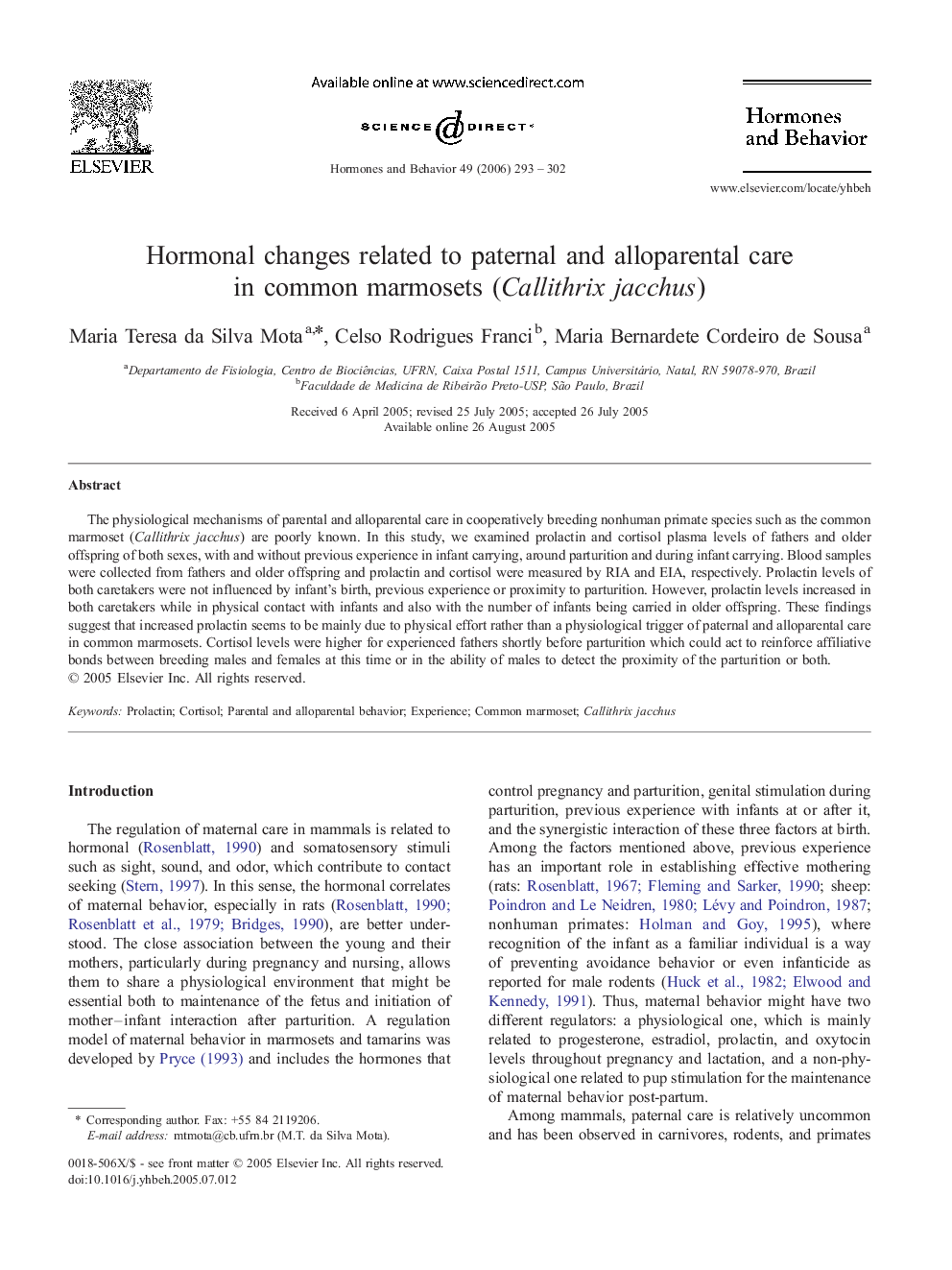| Article ID | Journal | Published Year | Pages | File Type |
|---|---|---|---|---|
| 323957 | Hormones and Behavior | 2006 | 10 Pages |
The physiological mechanisms of parental and alloparental care in cooperatively breeding nonhuman primate species such as the common marmoset (Callithrix jacchus) are poorly known. In this study, we examined prolactin and cortisol plasma levels of fathers and older offspring of both sexes, with and without previous experience in infant carrying, around parturition and during infant carrying. Blood samples were collected from fathers and older offspring and prolactin and cortisol were measured by RIA and EIA, respectively. Prolactin levels of both caretakers were not influenced by infant's birth, previous experience or proximity to parturition. However, prolactin levels increased in both caretakers while in physical contact with infants and also with the number of infants being carried in older offspring. These findings suggest that increased prolactin seems to be mainly due to physical effort rather than a physiological trigger of paternal and alloparental care in common marmosets. Cortisol levels were higher for experienced fathers shortly before parturition which could act to reinforce affiliative bonds between breeding males and females at this time or in the ability of males to detect the proximity of the parturition or both.
